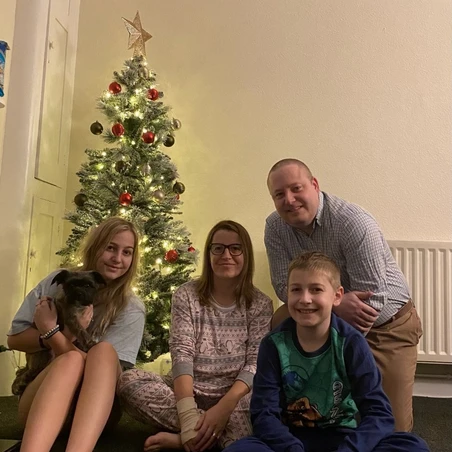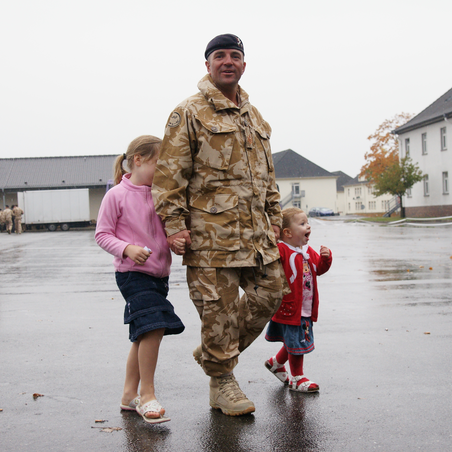As a Poppy Supporter you help so many people in so many ways.
One of those people is Lyndon Chatting-Walters, a participant of the Royal British Legion funded Battle Back Centre. For Lyndon, accepting his military career was over was one of the toughest moments of his life.
Being told you may never walk again is not how Lyndon Chatting-Walters saw his military career ending.
Lyndon was an 18-year-old combat engineer from Devon, travelling back to base after rescuing ambushed Royal Irish fighters, when his vehicle was attacked. He was blown almost 20 metres through the air by an IED and found himself lying in an apple orchard while being shot at both sides.
They pushed through and grabbed me.
Lyndon’s injuries were so extensive that doctors assumed he was paralysed.
He'd broken his back in four places, broken his ribs, had lung contusions, shrapnel injuries to his thighs and groin, but it didn't end there - he also had a broken leg, arm, and jaw.
"It wasn't until three weeks [later] in hospital when I was finally coming around, that I started wiggling my toes," he says.
"I was on strict bed rest for seven weeks [and] thought this was it for the rest of my life.
"The surgeons couldn't tell me exactly what was going to happen to me. One said: 'you might be able to walk short distances if you're lucky'. And then a different one would say: 'you're never going to be able to do anything you used to do'."
But Lyndon was determined - determined to get back to work, determined to get back to his friends.
By early 2009, he was back on base doing administration work for his squadron while wearing a spinal brace, but that just wasn’t enough for Chatting-Walters.
By September 2010, he had returned to Afghanistan, against all but one doctor's advice.
"I needed to go back to be with my mates and to finish what I started," he says.
"But it was really hard the second time. I managed to find a surgeon who was willing to sign me off to go. [But] I was in horrendous pain. It was the most depressed I've ever been. I did four months there before my back just couldn't take it anymore."
At only 21 years old, Lyndon had to accept that his military career was over.
With an unclear future filled with operations, rehabilitation, and pain that felt like would never end, Chatting-Walters spiralled into a pattern of destructive behaviour, getting in trouble with the police. He even admitted he was a borderline alcoholic.
"I was at an all-time low," he adds. "[That was when] I went to Battle Back.
It's a passion that he feels has saved his life.
"I'd been told [by my surgeons] I couldn't do anything - I'd spent so long being told that, I believed it. I went to Battle Back and it was amazing," he says.
"I did every activity - I was in pain for a lot of them but I realised I could still do stuff. When I left [that day], I was a totally different person to who I was when I went in."
Thanks to supporters like you, Lyndon has a bright future ahead of him as an Outdoors Instructor.
Thank you for your loyal support of the Royal British Legion. Poppy Supporters are a special group of people, keep an eye out for more updates on how your support is helping those in the Armed Forced community.
The Battle Back Centre Lilleshall was established by the Royal British Legion in 2011 to support wounded and injured service personnel returning from Iraq and Afghanistan.
Injured men and women from the Armed Forces can attend the RBL funded Battle Back Centre in Lilleshall and engage in adaptive sport and adventure training courses.
During the Covid-19 pandemic the Battle Back Centre was closed during periods of lockdown but re-opened at the earliest opportunities. Due to an understandable backlog course priority focused on serving injured and sick personnel. So to make sure no one was left behind, a new course was created making use of technology.
The Virtual Activity Course allows veterans to link in from home using personal computers, laptops or similar devices and undertake a number of exercises and learning interventions. This was a great initiative as we were able to reach people we normally wouldn’t have, particularly people with mobility issues, or who for whatever reason, are unable to leave their home to attend in-person sessions. With lots of positive feedback, we are hoping to include this course in our future wellbeing program for veterans.





.jpg?sfvrsn=855dcd0d_4&method=CropCropArguments&width=452&height=452&Signature=777B6FFEE4FF28485F3E4C2FD2607FE6EEF6F09C)


